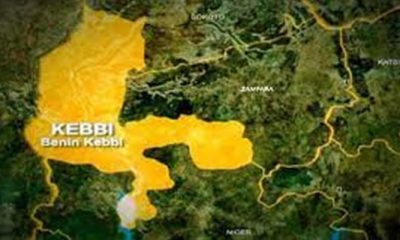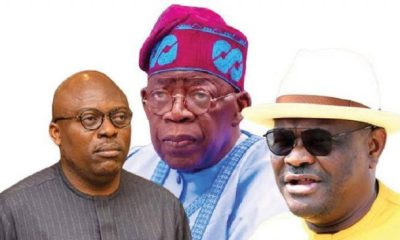Health
Peak Malaria Season Claims Lives In Borno

Nigeria has some of the highest number of deaths from malaria worldwide. Usually, peak malaria season takes place during the rainy season from August to mid-October, when mosquitoes breed, after which patient numbers begin to decrease.
This year, however, medical teams from Médecins Sans Frontières/Doctors Without Borders (MSF) working in northeast Nigeria’s Borno state have witnessed a spike in malaria cases even into the dry season.
During this year’s rainy season, MSF teams conducted or supported four rounds of seasonal malaria chemoprophylaxis, which prevents malaria, in different locations across Borno state, including in camps for displaced people. MSF teams have also been supporting the Ministry of Health by carrying out seasonal malaria chemoprophylaxis in Gwange district and in informal camps for displaced people in Maiduguri.
Ekohotblog noted that campaign was aimed at children aged between three months and five years and MSF delivered more than 350,000 doses in the first three rounds, while the Nigerian Ministry of Health had planned to reach around two million children in total.
The fourth round of the campaign was however, meant to be carried out during the rainy season in mid-October, but shortages of medical supplies meant that it was delayed until mid-November.
READ ALSO:No Plan To Increase, Introduce New Taxes In 2021 – FG
Despite the preventive campaign, a number of young children died in hospital from the disease.
Hussaini, aged 5, is being treated for malaria in MSF Gwange hospital (Maiduguri, Borno), cared for by his grandmother, Hajja. “He has been having this sickness for about a month, though he has sickle cell anaemia as well,” says Hajja. “If it weren’t for MSF, I wouldn’t have been able to afford his treatment, because Hussaini lost his parents and I too have been alone since my husband died.”
Hussaini arrived at the hospital just in time for his treatment to be successful, but many patients are not brought in until it is too late to save them.
Advertise or Publish a Story on EkoHot Blog:
Kindly contact us at ekohotblog@gmail.com. Breaking stories should be sent to the above email and substantiated with pictorial evidence.
Citizen journalists will receive a token as data incentive.
Call or Whatsapp: 0803 561 7233, 0703 414 5611



















